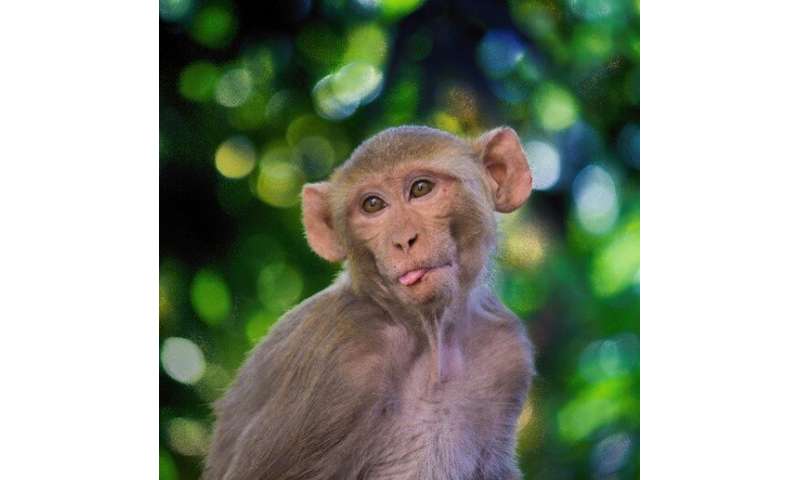Mimicking SARS-CoV-2 nasal infection in monkeys


A new rhesus macaque animal model recapitulates the clinical and pathological manifestations of coronavirus disease 2019 (COVID-19) observed in humans by mimicking natural infection via the nasal route, according to a study published November 12 in the open-access journal PLOS Pathogens by Longding Liu, Qihan Li, Zhanlong He of the Chinese Academy of Medical Sciences & Peking Union Medical College, and colleagues. As noted by the authors, the new animal model could lead to effective treatments or vaccines for COVID-19, which is caused by severe acute respiratory syndrome coronavirus 2 (SARS-CoV-2).
The first step of all effective means to control COVID-19 and develop vaccines is to understand the viral infection process. Toward that goal, an effective animal model of SARS-CoV-2 infection is urgently needed. In the new study, the researchers developed a rhesus macaque model to mimic natural infection via the nasal route. The rhesus macaques displayed similar clinical and pathological manifestations of COVID-19 observed in humans.
The results revealed SARS-CoV-2 virus shedding- the release of virus progeny following successful reproduction—in the nose and stool for up to 27 days. This pattern of long-term viral shedding in rhesus macaques is strikingly similar to that observed in humans. The authors also observed similar pathological changes between humans and rhesus macaques in the progression from mild to marked interstitial pneumonia—an inflammatory condition affecting the tissue and space around the air sacs of the lungs. The results further revealed immune responses involving T cells, which contributed to the progression of COVID-19, and inflammation-promoting, cell-signaling molecules called inflammatory cytokines in the respiratory tract. The findings suggest that the development of COVID-19 treatments and vaccines should focus not only on viral shedding and interstitial pneumonia, but also T cell responses and cytokine changes in the lungs.
Source: Read Full Article




